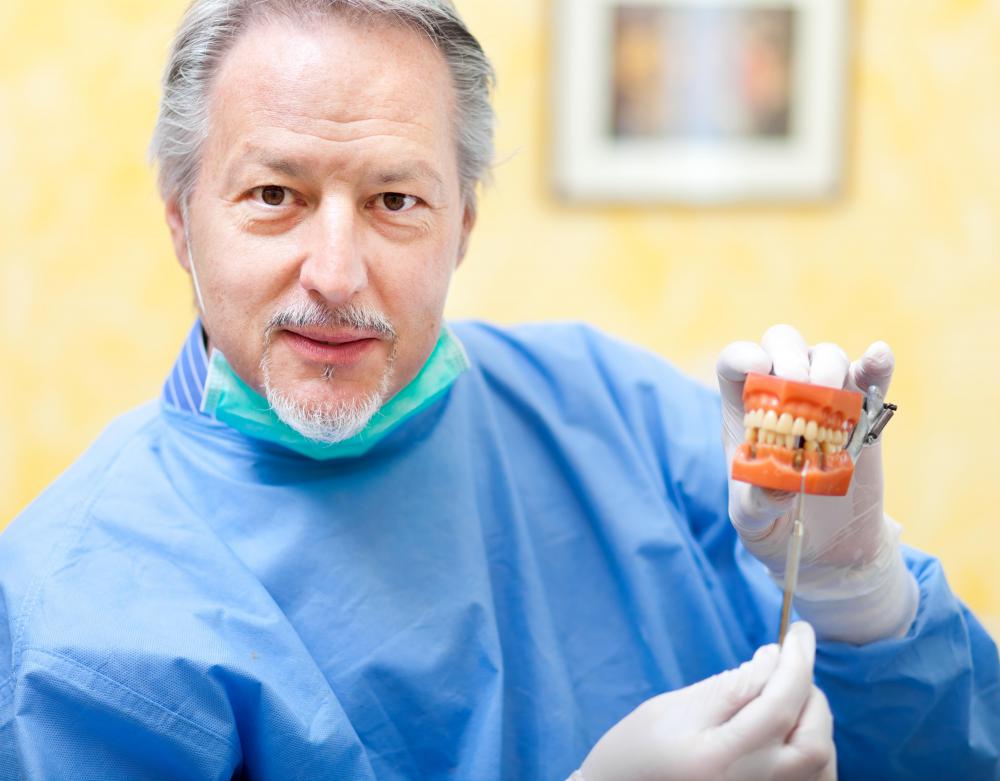At WiseGEEK, we're committed to delivering accurate, trustworthy information. Our expert-authored content is rigorously fact-checked and sourced from credible authorities. Discover how we uphold the highest standards in providing you with reliable knowledge.
What is Endodontics?
Endodontics is a form of dentistry concerned primarily with the roots and soft matter below the tooth. Some dentists specialize in endodontics, and may spend several additional years studying this specialty after finishing a regular course in dentistry. Many earn a Master’s Degree in the specialty. Most often those who practice endodontics spend most of their time doing complicated root canals, about 16 million a year in the US alone. General dentists who have not specialized in endodontics may also perform a root canal.
Root canals are required when the pulpy portion of the tooth in the roots become diseased. The surface of the tooth may still be healthy, but the roots are no longer so. The dentist specializing in endodontics extracts diseased pulp from below the tooth by drilling through the tooth.

If only one root is affected, a dentist may do a root canal. However, if more than one root requires cleaning out and pulp extraction, the endodontist, may be called in to perform what will be a longer and more complicated root canal. It can sometimes be difficult to wait for an endodontist, since death or infection of the pulp is usually quite painful. The endodontist may have a full appointment book that delays treatment of the tooth for several weeks.

Those specializing in endodontics are often quite busy since they tend to limit their practice to performing root canals, and also to work like draining abscesses, and root canal therapy. Further, many insurance plans require one to have a referral to an endodontist prior to getting work done. This can make the process of seeing a specialist somewhat complicated. However, those who have seen the same endodontist in the past are considered “patients” and may have priority status. Patients who have a severe condition that requires immediate treatment may also be seen quickly.

It should be noted that most patients who receive root canal treatment do not return to the endodontist for the final course of treatment on the affected tooth. Most endodontists put a temporary filling in the hollowed out roots. Teeth that require a root canal then usually require a crown. A general dentist is typically responsible for putting on crowns.
AS FEATURED ON:
AS FEATURED ON:















Discussion Comments
Permanent crowns have to be made to measure, specifically for each patient. Temporary crowns are used in the interim, while the permanent crown is being made in the laboratory for the exact shape of the patients' tooth.
Why can't the endodontist put a regular crown on your teeth after a root canal? what is the point to putting a temporary crown on the tooth only to have to schedule another appointment with a general dentist just to take the temporary off and replace it with a permanent crown?
how do you know if your tooth has a fracture?
Usually the teeth with root canal work are not so strong as the rest of the teeth. They tend to
crack after a while.
Post your comments